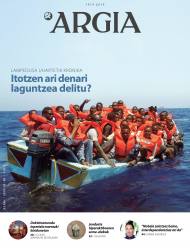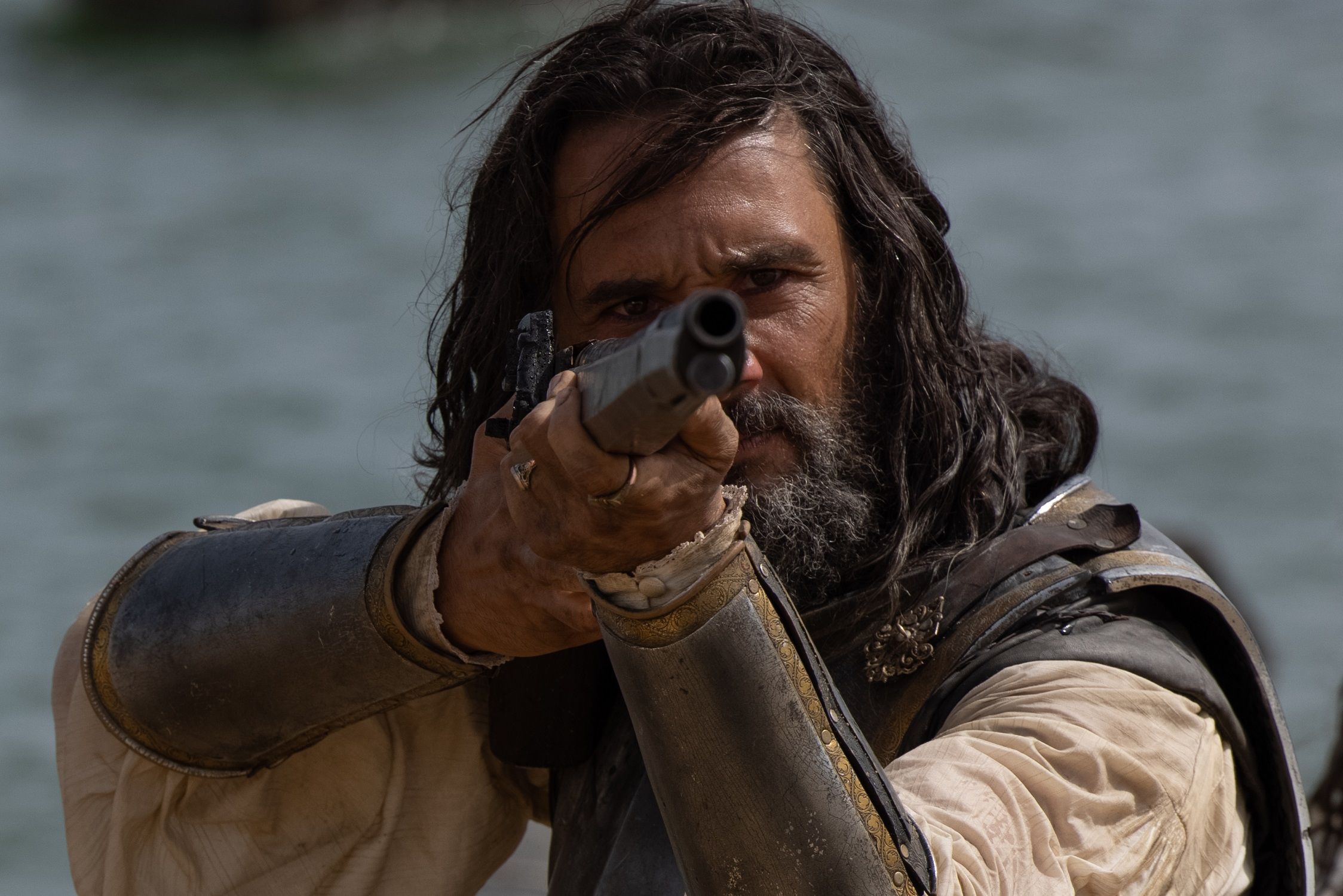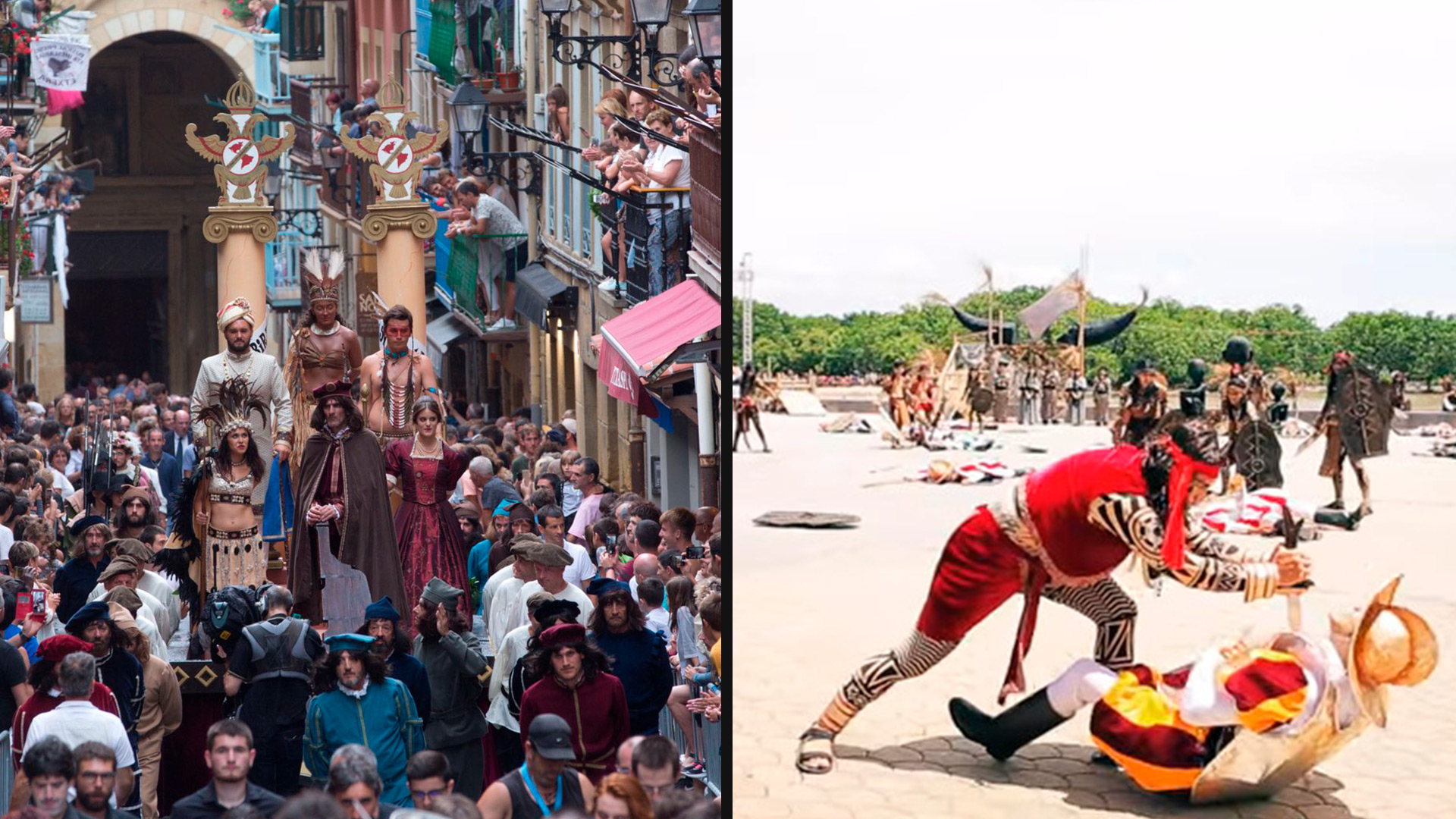Imperial indoctrination in cartoons
- Elcano, the first round of the world, comes to the big screens the animated film on the occasion of the fifth centenary of the first round of the world. The film is a hagiography by Juan Sebastián Elcano, who pays an absolute tribute to Imperialism. This palpation of colonialism contrasts with the imperial era we live in the Spanish State. It is no wonder that the film is funded by the Spanish Ministry of Culture and Sport and the participation of RTVE. It is more surprising that the film is shot in Euskera and that EITB has participated in it, but obviously, the belief in Western hegemony is widespread.

The world for whites
The film presents the expedition of Magellan, but focused exclusively on the antagonism of the good Spaniards and the bad Portuguese. Portuguese wickedness is an excuse to justify the Spaniards as good in history in the plot of the film. The fact that Spaniards and Portuguese struggled to control the passage of species is unquestionably naturalized the hegemonic passion of both powers. Those who have gone to the expedition are continually infantilized and despised by the societies that are on the road and present us as “savage” idiotes. The script is based on the texts of Pigafetta, the official chronicler of that expedition, and it takes good account of his reasoning. The only thing Director Ángel Alonso has done is: Take Pigafetta's imperialist discourse, soften it a little, adapt it to new times and take it to cartoons.
.jpg)
Love for the “indigenous”
A supposed love story between a girl from Molucas and Elkano who led the Spanish expedition to the island of species is one of the main themes of the film. Through this story, they humanize the protagonist and they want to make us believe that love is a way to overcome the obstacles between peoples. But history is nothing more than an invention. There was some relationship between the members of the expedition and the women of other societies, yes, but very different from what we were taught. The story of Juan López de Carvalho, commander of the expedition after the death of Magellan, for example, is well documented, but in the film, of course, it does not count. Before boarding Magellan, Carvalho was in Brazil, where he had a relationship with an Indian and had a son with him. As he passed by the current Bay of St. Lucia near Rio de Janeiro, he went to look for the two and took them on expedition. The problem began with the arrival in Brunei. Carvalho kidnapped three indigenous women (a very common habit in these expeditions, although Pigafetta appears, but the film hides it). To avenge this kidnapping, the people of Borneo were kidnapped by several members of the expedition, including the son and lover of Carvalho. Carvalho did not care about them: The three women of Brunei were sold as friends and continued their journey, leaving the hostages in the hands of the locals.

No slaves
The film disfigures from the top down the relations between Westerners and other societies and hides that they had slaves. For example, the “Faithful Henry” of Molucas presents himself as a man of trust of Magellan. That Henry of terrible loyalty and prodigality, known as “Enrique de Malaca” or “Enrique negro”, existed and was the first person to turn around the world, but Enrique was a slave: Magellan bought it on a previous expedition to Molucas and took it around the world to use it as an interpreter. He was not a trusted man of Magellan and, moreover, he did not grant him freedom. He promised that he would release her when she died (if she had been free, she would probably never embark). However, after the death of Magellan, the other members of the expedition refused to grant the freedom they had promised Enrik, which apparently ended up conspiring against the Spaniards. Another thing we don't see in the film is that the expedition sometimes raped the people of the societies that were on the way. Pigafetta tells us about the kidnapping of a person from Patagonia who died a few days after being boarded, “but not before being baptized with the name of Paul,” said Pigafetta, the compunted.
.jpg)
Against the Moors
The comrades of the expedition continued to show their contempt for the societies they found. When they arrived in Guam, Mariana was named the “Islands of the Thieves”, without understanding the system of reciprocity of the natives. They were very clear about the need to Christianize the “savages” (even if not shown in the film), as they believed that their religion was above others and that theirs was the only true god. In fact, the battle on the island of Mactan, in which Magellan died, was in itself due to the admiral’s will to Christianize. It should be remembered that the Spaniards felt a great aversion to all Muslims, as their objective was to avoid the control of Islam over the terrestrial route of species, a control that greatly increased species. This provoked a very harsh attitude among the expeditionaries against the Muslim populations in Asia.
Those knights of the sea
In the first part of the film the tensions between the sailors are accepted, many of them often wanted to abandon their boss, not without reason: only 35 of the 239 who traveled in the expedition returned home. But Elcano, on the first lap of the world, is the kindness between them. The film speaks of the rebellion of Juan de Cartagena, but not of the fact that when the uprising failed and imposed on the Magellan people, it killed forty people and their bodies were hanged for several weeks. In the same vein, the film goes on to explain the exile of one of the rebels as an act of mercy: It was abandoned in Patagonia, without any possibility of salvation. The truth is that the military chiefs of the expedition acted tyrannically, but the friendship between Magellan and the sailors who faced Elcano was not too great either. In the Pacific Islands, some sailors jumped up and sold as slaves to those who did not join the revolt. The film shows the brutal hunger of the expeditionaries, but it hides the moral misery of those men. Officer Antonio Solomon was hanged and captured sodomized by the young sailor Antonio Ginovés. Ginovés was considered a victim of abuse and was not convicted, but was stigmatized to such an extent that he committed suicide by throwing himself into the water. In the cartoons we will not find a single mention of Ginovés.
.jpg)
A cruise?
According to the film, the first round of the world was something like an adventure sports championship, as successful as it was terribly hard. Economically, the expedition was a success, as the cargo of the only of the five boats that managed to return equated the costs of the five boats. At the political level, the impact was lower: The Spanish State never managed to control the route of species. The route from the Indies to Asia, through America, was hardly used, but thanks to it Spain conquered the islands of Mariana and the Philippines. But in the movie, everything is triumphalism.
Education of the imperial spirit
Elcano, the first round of the world strikes historians and professors who have seriously and systematically researched explorations and colonial phenomena in recent decades through one-and-a-half hour entertainment. The film completely rejects Spanish nationalist myths and Western supremacism, rejecting any fundamental reflection on relations between Europeans and other societies. They have even neglected the darker aspects of the Magallanes-Elcano expedition, referred to in the book Relazioni in connection with the prime viaggio di circumnavigazione [On the first round of the world], of the Pigafetta itself. First, they have set aside the experiences of ordinary Westerners who participated in these expeditions (Harry Kelsey, The first Circumnavigators. Unsung Heroes of the Age of Discovery Unknown heroes of the age of discoveries explained masterfully in the chronicle). But the most serious thing is that the film underestimates the existence of other peoples and neglects the harsh influence that European presence has had in American and Pacific countries (in books such as Marshall Sahlinsen Islands of History). In short, Elcano is a film aimed at selling the virtues of imperialism among children, the first round of the world.

This report was published by Gustau Nerín on the web Elnacional.cat, we brought it to the Basque Country with the permission of the author to ARGIA.
Two friends offered a small rap performance in the plaza and musutruk, after a simple popular meal. With a song, we were reminded that a neighbor, a young man, recently passed away. Money had to be raised to return the body to its hometown. Oh, that mother of mine! Your child's... [+]
Unconscious day-to-day exercise has become a topic during your stay in the Basque Country. I haven't been there for many days and I've been squeezing my breath several times... I'm an observer trying to find and rediscover my people. If I didn’t want to see things before or if... [+]



















